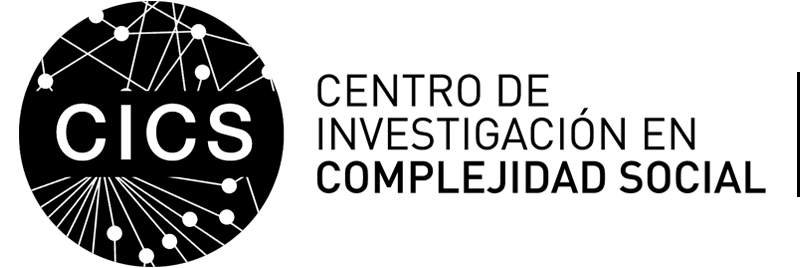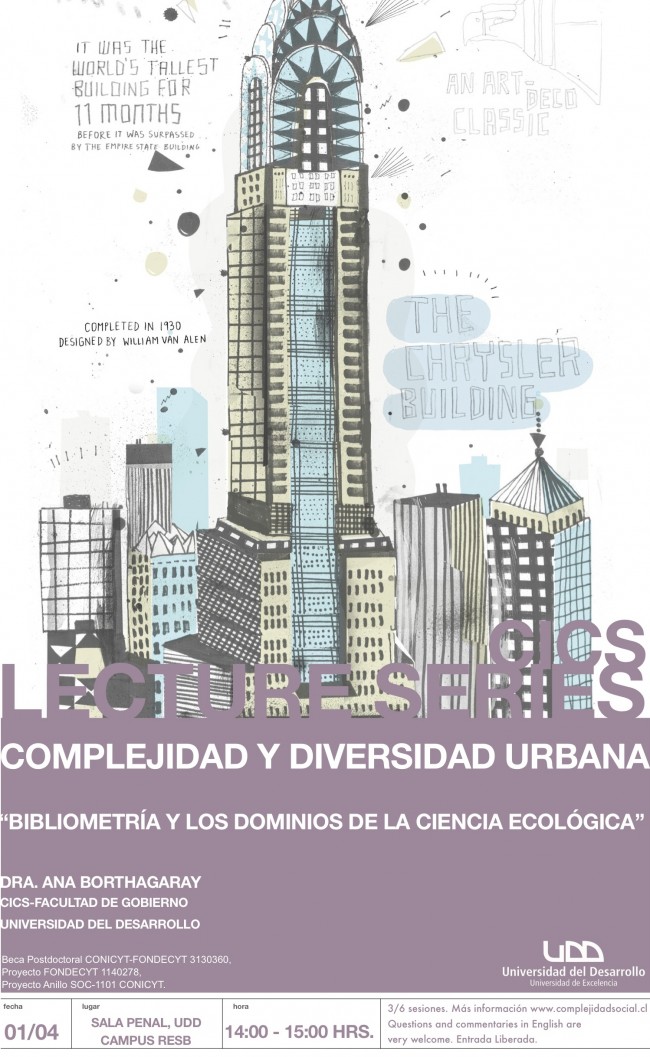CICS Lecture Series on urban’s complexity and diversity 3/6: “Bibliometrics and the domains of the ecological science”
Viernes, 28 Marzo, 2014 | CALENDAR, EVENTS, NEWSAna Borthagaray will deliver the third lecture of the CICS Lecture Series on Urban’s Complexity and Diversity, titled “Bibliometrics and the domains of the ecological science“.
Ecology is a heterogeneous science, with researchers focused on different ecosystems and organization level, or motivated by apply, descriptive, or theoretical problems. It was proposed that this discrepancy in focus probably determines some degree of fragmentation, for example between theoretical and empirical, or aquatic versus terrestrial ecologists. In a science with a tendency to split in sub disciplines leader Journals—e.g. those with the highest impact—should have a main role in the flow of information along the whole scientific community. In this study we analyse the network of citing relationship (relatedness) among Ecological Journals (N=134) with two aims: 1) to evaluate the degree of modularity among ecological Journals and 2) to estimate Journals’ centralities, which are measures related to their role for information flow among Journals. We further relate these measures of Journals centrality with their impact factor.
General information
When: Tuesday 1st April, 14:00 hrs. -15:00 hrs.
Where: Sala Penal, (fourth floor, Patio de Aula) Universidad del Desarrollo, Campus Rector Ernesto Silva Bafalluy, Av. La Plaza 680, Las Condes.
Language: Spanish (questions and comments in English are very welcome).
Questions: [email protected]
Acknowledgments
Postdoctoral fellowship CONICYT – FONDECYT Nº3130360 (Chile) and CONICYT: Anillo en Complejidad Social SOC-1101.
Project Inter-faculties UDD “Socioeconomic Diversity: emergent properties, complexity and sustainability in urban systems”
Project Anillo SOC-1101 CONICYT
Project FONDECYT Non Local Interactions in Stochastic Environments



